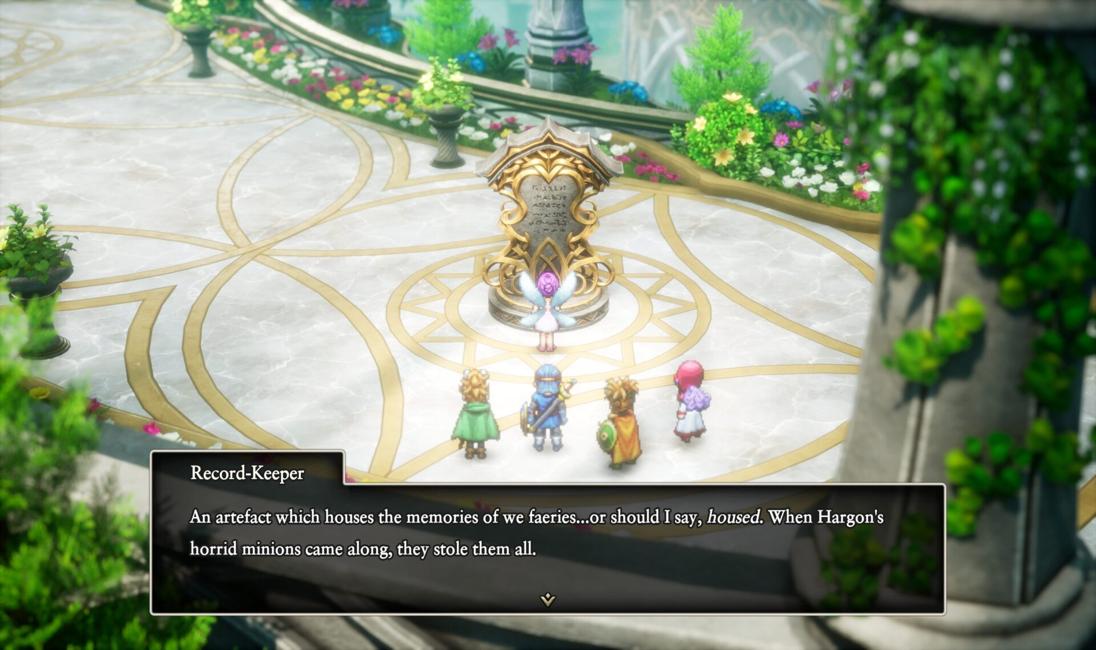So, Dragon Quest. Where do you even begin? It's a franchise that's practically synonymous with JRPGs, a series with more history than some small countries. But here’s the thing: sometimes, the origins get a little… fuzzy. We remember the big moments, the iconic characters, but the actual starting point? It's easy to overlook the roots in favor of flashier, more modern entries. The announcement of the Dragon Quest I & II HD-2D Remake, though? It's not just a remake; it's a chance to really understand where this whole phenomenon began. And I, for one, am stoked.
Think about it: how many gamers today have genuinely experienced the very first Dragon Quest? I'm willing to bet it's a smaller number than we'd think. These games aren't just classics; they're historical artifacts in the gaming world, foundational texts that defined a genre. This remake is a chance to preserve that history, make it accessible, and, crucially, make it engaging for a modern audience.
A Fresh Coat of (HD-2D) Paint for Dragon Quest
Now, the HD-2D style. Some might call it a gimmick, but I think it's genius. It captures the charm of the original pixel art while adding a layer of visual polish that makes it palatable to today's eyes. The games look… well, gorgeous. There’s a depth and vibrancy that pixel art alone can’t achieve, but it maintains that retro feel, that nostalgic tug that makes you remember why you fell in love with these games in the first place. It’s like seeing a classic painting restored – the underlying beauty was always there, it just needed a little love and attention to truly shine. And you know what? I think Square Enix is really onto something with this HD-2D business. It lets them bring back these classic titles without alienating the hardcore fans or scaring off new players with antiquated graphics. More and more of these retro games are coming back with a bang.
And speaking of the hardcore fans – don’t think for a second that this is just a visual upgrade. From what I understand, they are tweaking the gameplay and story a bit too. Not in a major “let’s rewrite history” kind of way, but more of a “let’s smooth out some of the rough edges and make this experience as enjoyable as possible” kind of way. Because let's be honest, some of those old-school JRPG mechanics can be a bit… unforgiving by today's standards. But don’t worry! I am sure they will deliver the right product.
Why Dragon Quest's Origins Matter
Here’s the thing about origin stories: they often reveal the core DNA of a franchise. What are the themes that resonate throughout the series? What are the character archetypes that keep popping up? What are the gameplay loops that define the experience? By revisiting the first two Dragon Quest games, we get a clearer picture of what makes Dragon Quest, well, Dragon Quest. And that's valuable, not just for nostalgia's sake, but for understanding where the series is going.
For instance, think about the simplicity of the early stories. Hero sets out to defeat evil, rescue the princess, save the world. Classic stuff, right? But within that simplicity, there's a powerful message about courage, friendship, and the importance of standing up for what's right. Those themes, while perhaps more nuanced in later games, are still present. They are the foundation upon which the entire series is built.
Dragon Quest I & II: More Than Just Nostalgia
But this remake offers something even more profound than just a trip down memory lane. It's a chance for a new generation of gamers to experience the roots of a genre. To see where all those tropes and mechanics they take for granted actually came from. It's a history lesson disguised as a fun, engaging video game. And I think that's incredibly important.
Actually, that's not quite right. It’s not just important; it’s essential for the long-term health of the JRPG genre. By understanding the past, we can better appreciate the present and help shape the future. It’s like learning the rules of music theory before you start composing – you need to know the fundamentals before you can truly innovate. I initially thought it was just about appealing to old fans, but I couldn't be more wrong.
Think about it this way: how many modern JRPGs borrow elements from Dragon Quest without even realizing it? The turn-based combat, the world map exploration, the leveling system – these are all things that Dragon Quest either invented or popularized. By playing these remakes, you're not just playing a game; you're experiencing a piece of gaming history. Plus, who knows? Maybe they'll pull a Final Fantasy VII: Rebirth and totally reinvent the storyline to give us a new experience. Now that would be exciting.
And that’s what excites me most about this release. Not just the pretty graphics, or the smoothed-out gameplay, but the potential for a whole new audience to discover the magic of Dragon Quest. The kind of magic that has kept this series alive and relevant for nearly four decades. It’s a chance to pass on the torch, to introduce a new generation to the Hero, the Princess, and the Slime. And hopefully, to inspire them to create their own adventures, their own stories, their own legacies.
Oh, and while we're talking about legacies and stories, you might be interested in Homura Hime Demo, another adventure that's grabbing attention!
FAQ: Dragon Quest I & II HD-2D Remake
Will the Dragon Quest I & II HD-2D Remake have updated story content?
While the core narrative will likely remain faithful to the originals, expect some quality-of-life improvements and perhaps expanded dialogue or scenes to flesh out the story. Think of it as a director's cut, enhancing the existing experience without drastically altering the original vision. The goal is to make the story more engaging and accessible for modern audiences while still preserving its classic charm. It's a fine line to walk, but from what we've seen so far, Square Enix seems to be handling it with care.
How does the HD-2D style enhance the original Dragon Quest experience?
The HD-2D style brings a beautiful level of detail and depth to the classic pixel art, creating a visually stunning experience that still retains the charm of the originals. It's not just about making the game look prettier; it's about adding a layer of immersion that wasn't possible with the limited technology of the time. Think of it as giving the game a new lease on life, allowing players to experience it in a way that feels both familiar and fresh.
Why are these original Dragon Quest games important to gaming history?
The original Dragon Quest games were foundational to the JRPG genre, popularizing many of the tropes and mechanics that we still see today, like turn-based combat and world map exploration. They established a template for countless games that followed, and their influence can still be felt in modern JRPGs. They're not just old games; they're historical artifacts that offer a glimpse into the origins of a beloved genre.
What platforms will the Dragon Quest I & II HD-2D Remake be available on?
That's the million-dollar question, isn't it? As of right now, Square Enix hasn't officially announced all the platforms. While a Switch release seems like a no-brainer given the series' history with Nintendo, we're all waiting to see if it will also come to PlayStation, Xbox, and PC. Keep your eyes peeled for official announcements from Square Enix in the coming months.
And there you have it. The Dragon Quest I & II HD-2D Remake is shaping up to be more than just a nostalgic trip. It's a chance to rediscover the roots of a legendary franchise, and to appreciate the timeless themes and mechanics that have made Dragon Quest such an enduring part of gaming history. I, for one, can't wait to dive back in and experience these adventures all over again.





















